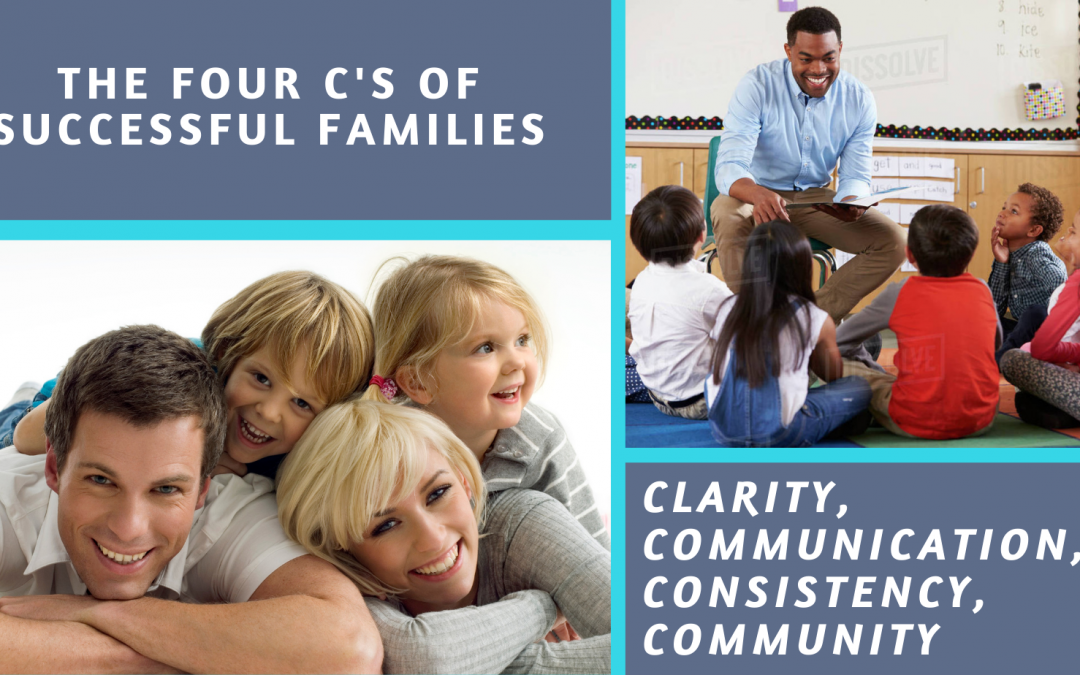Personal Development
Many adults in their professional lives are required to take Professional Development (PD) courses. They do so willingly or sometimes reluctantly with the hope of improving their status or ability to make progress in their career.
Many more adults delve into personal development courses, books, seminars, webinars, and coaches. They do so with a thirst to create the best version of themselves in their relationships with a partner, as a parent or bottom line – they are looking for greater joy, happiness, and success in life.
There is little we can do as a parent that has more impact on our family than developing our own character, balancing the virtues that fill us. What we role model for our children, informs them of what is important to us as their leader.
Why Build A Good Character
“You are your most important critic and your conscience your most important judge of character.”
Denis Waitley
Take a moment first to remind yourself that you have all of the virtues already. Building character is about developing / balancing those virtues and living up to your full potential. Virtues are a part of your inner-being. They might be shown in positive or negative ways or they may be over or underdeveloped, but they are there in full potential.
Personal development begins as we clarify how we want to be in this world and then act on those ideals and values consistently. Living a balanced life impacts how you feel about yourself and those in your sphere of influence, especially your children.
How Good Character Traits Help
- Gain trust and respect from others.
- Inspire and motivate others to build good character.
- Improves confidence and self-respect.
- Provide a core for making major choices and decisions.
- Display leadership attributes in both professional and personal endeavors.
- Also, good character traits are the backbone of a wholesome functioning society.
While the development of your virtues is not without stress, successfully developing these traits can be amongst the most pleasant and satisfying endeavors.
People often fall into the trap of thinking their character is fixed and cannot be changed. They assume they are either good or bad. However, research has shown that character is malleable. Virtues can be developed and balanced over time with practice and devotion.
Here is a list of 10 character traits/virtues worth developing. Each of them will impact every role you play in life – especially parenting. Working on all ten at once might be quite impossible, so a good idea is to pick one of these qualities and get started.

Humility
This is the quality of being humble. The feeling or attitude that you are not more special, or more important than others. No man is an island and being a humble person entails accepting the contribution of other individuals in helping you accomplish all you have achieved. Acknowledging the role of your mentors, role models, and everyone else who’s helped you reach your goal. Humility helps us to learn from our mistakes and ask for help when needed.

Contentment
This is the mental and emotional state of content and satisfaction drawn from being at ease with one’s situation. According to research, this is the state of acceptance of one’s situation and is a less tentative feeling of happiness.
However, a thin line separates lack of ambition and contentment. Contentment does not mean that you lack dreams, mission or purpose. Contentment is a place to stand and view the future with appreciation for what is and all that is to come in the future. We can be content and trust that the Universe will answer the desires we have for the future.

Reliability
Successfully fulfilling whatever has been entrusted to you is an amazing character trait. Being considered as someone reliable and dependable even when it requires some sacrifice to deliver is a positive character trait worth developing. Reliable individuals choose their commitments with care and take responsibility for the promises they have made.

Determination
This is the positive emotional feeling that entails persisting in pursuing a challenging goal despite the presence of obstacles. Determination serves as motivation to achieve a goal, and it usually precedes the achievement of said goals. Everyone loves a determined person who works steadily to achieve their goals; because it demonstrates that you care about something so much that even when it is hard, you still keep going.

Patience
This character trait is amongst the most neglected trait in today’s fast-paced world. This involves waiting for the right things to happen at the right time. It is the capacity to delay satisfaction and having self control. You cannot control the way someone else is acting or when your goals aren’t met on the time schedule you had hoped for. Patience is amongst the top character traits worth developing.

Honesty
Truthfulness and honesty to others and yourself is a good indicator of a responsible individual. Apart from being respected by others, an honest individual has better odds of being genuinely happy and living long as compared to not being true to yourself. Amongst the leading reasons for being dishonest is the fear of consequences. This can be overcome by having the courage to face the consequences of our actions, however dreadful they might be.

Courage
This is the willingness and ability to confront uncertainty, danger, intimidation, pain, or agony despite fear and doing what needs to be done even if it is hard or scary. This is a good character trait worth developing as it helps us to face the truth and mistakes we make with a readiness to try again. Once you are courageous, you’ll face the unknown and explore the world around you rather than being held back by fear.
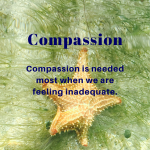
Compassion
According to research, this is a desirable and admirable character trait, especially when placed side by side with the alternative of being judgmental, critical, or indifferent to the plight of others. Having compassion for ourselves is as important as showing we care for others. Compassion is especially important in a world that can be hard and lonely,
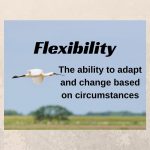
Flexibility
This virtue is about being capable of adjusting to new situations and conditions. While there are times where standing your ground and being rigid has its benefits, it more often than not gets in the way of progress. This trait entails being resilient enough to adjust and adapt to new information and situations rather than being rigid.
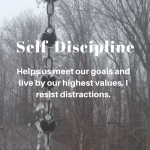
Self-Discipline
While the above character traits are important and worth developing, self-discipline helps ensure you do not allow emotions to control decisions or responses to challenges. Self-discipline helps us to create structure in our life, using routines and rituals so you have time to fill personal needs and those of our family. You have the ability to think, learn, absorb, and know when to act on strong impulses.
There you have 10 virtues that are worth developing personally and in your children, so your family lives united, happy, and successful lives. Living life to its full potential is the reason we developed the framework for the Four C’s of Successful Families. I desire to see every family safe, healthy, successful and happy. Therefore, each stage of the Four C’s, Clarity, Communication, Consistency, and Community brings out the best in ourselves, in our families, and our life.
Where to begin
The Four C’s of Successful Families begins with Clarity. Clarity begins with each of us as individuals and then is united with those we love. We cannot lead a family or any group without first being clear about who we are, what we stand for, and what we want to accomplish in the roles that we play.
To gain clarity begin by identifying the roles that you play in life, both personal and professional. To get you started here is a brief list that you can choose from and add to as you think of the roles you are filling:
- father/mother
- husband/wife/partner/Significant other
- sibling
- friend
- employee
- boss
- volunteer
- Member of a civic org.
- Member of a faith organization
- son/daughter
- aunt, uncle, cousin etc.
- NAME YOUR OTHER ROLES
As you look at these roles choose four of the most important to you at this moment.
Then consider the following questions.
Write a description of your best self in each of those roles.
- Describe how do you want to be in each of those roles?
- How do the virtues listed above look in the roles you have listed?
- What behaviors or practices would demonstrate those virtues in the roles you chose to examine?
- Are there other character traits or virtues that are more important to you in those roles so that you can be the best version of yourself? (See a list of 100 virtues here)
Personal development gives parents more authority to guide and correct children, while helping yourself and them develop the virtues inside of them.
As you fill in the grid by answering these questions you will begin to notice that some of the same characteristics or virtues keep showing up in all of your roles. Those virtues are certainly ones that are important to you to practice on a regular basis as they demonstrate what you value in life.
The virtues that keep coming up on your grid no doubt, are important to you to develop in your children. Consider for a few minutes how you can help your child or children to develop those virtues in themselves.
While doing all of this, be careful that you are not influenced by what others insist is important or what society demands from you. Each of us is unique, your family is unique and how you want to present yourself and your family is up to you individually.
When a parent is working on themselves, children are taking notice. Personal development gives parents more authority to guide and correct children, while helping yourself and them develop the virtues inside of them.

See a full list of 100 Virtues with descriptions and practices at:
https://josephmichael.coach/100-virtues/
Is there something you are struggling with in family life? Are you looking for ways to bring out the best in yourself and your children? Want to learn how the Four C’s of Successful Families can work for your family?

Virtues Pick: Humanity
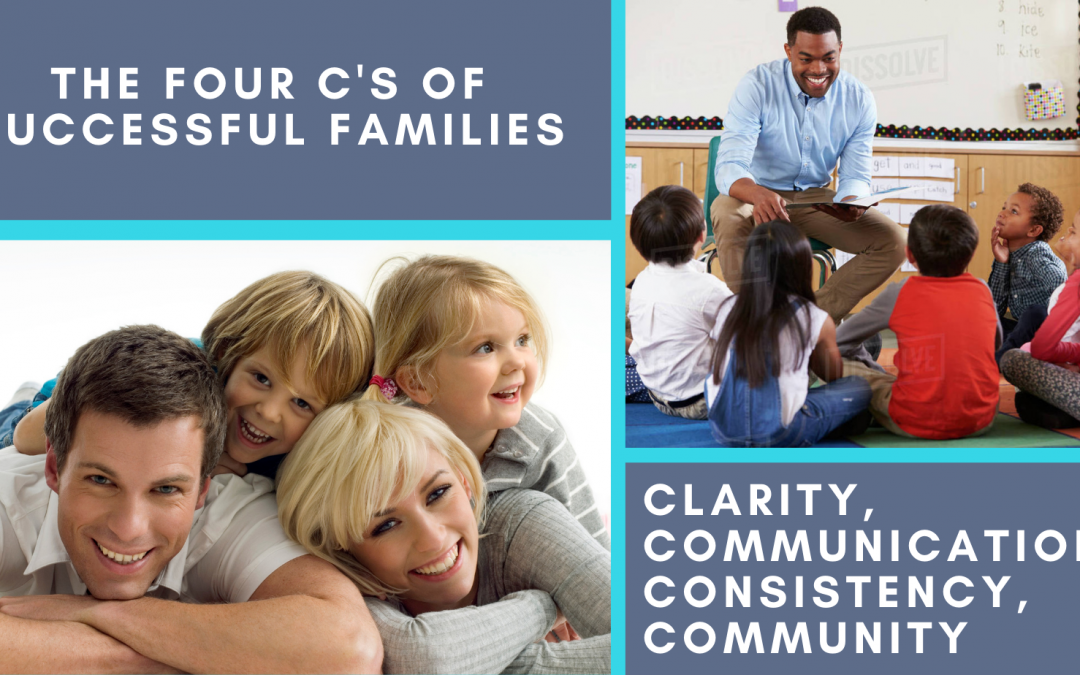
Introduction to Four C’s of Successful Families
You have heard me speak of the Four C’s of Successful Families in the Virtues Pick we do each day. I do not know if there are truly any new ideas in this framework, however I am hopeful that the way this is presented will be helpful to families and individuals as they...

Zeal
DescriptionZeal is the vibrant energy that arises when we dedicate ourselves to a purpose that resonates deeply with our values. The passion propels us forward, igniting our actions with enthusiasm and ardor. When we embrace zeal, we commit wholeheartedly to our...

Wonder
DescriptionWonder is the virtue of being fully present in the beauty, mystery, and awe of life. It opens our hearts and minds to the grandeur of existence, encouraging us to see the extraordinary within the ordinary. With wonder, we cultivate a childlike appreciation...

Wisdom
DescriptionWisdom is the virtue that guides our decisions with discernment and insight. It calls us to step back, observe, and understand before acting, helping us to choose thoughtfully and intentionally. Wisdom anchors us in clarity, encouraging us to see beyond the...

Unity
DescriptionUnity is a transformative virtue that binds us together, creating harmony within families, communities, and the world. It is the power of inclusiveness—bringing people together by embracing our shared humanity while honoring the richness of our differences....

Understanding
Description Understanding is the virtue that invites us to truly perceive both ideas and emotions with clarity and depth. It calls us to go beyond surface-level judgments, seeking the full truth in every situation. When we practice understanding, we are present with...

Truthfulness
Description Truthfulness is the bedrock of integrity on which we build all our other virtues. It is an ongoing commitment to live by what is real, authentic and true for us. We make realistic decisions. We do not lie, cheat, or deceive. We tell the truth kindly. Our...

Trustworthiness
Description Trustworthiness is the steadfast quality of being reliable, honest, and consistent in our actions, words, and intentions. It is the foundation upon which all meaningful relationships are built, whether personal, professional, or communal. To be trustworthy...

Trust
Description Trust is having faith, hope, and a positive outlook. Trust is believing in someone or something. We have confidence that the right thing will come without trying to control or make it happen. We trust others to do what they say they will do and give them...
Follow Along
Class aptent taciti sociosqu ad litora torquent per conubia nostra, per inceptos himenaeos. Sed molestie, velit ut eleifend sollicitudin, neque orci tempor nulla, id sagittis nisi ante nec arcu.
Free Courses
Duis egestas aliquet aliquet. Maecenas erat eros, fringilla et leo eget, viverra pretium nulla. Quisque sed augue tincidunt, posuere dui tempor.
Premium Courses
Duis egestas aliquet aliquet. Maecenas erat eros, fringilla et leo eget, viverra pretium nulla. Quisque sed augue tincidunt, posuere dui tempor.
Ready to get started?
Get in touch, or create an account

